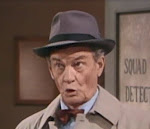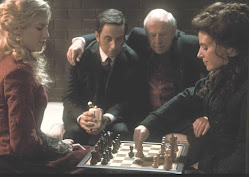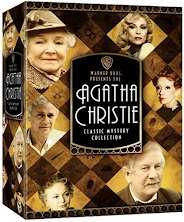Spelling in front of people or dogs is a comedy trope.
In Psych, "Spelling Bee," the humor arises from Shawn providing very easy words from the Spellmaster's grocery list.
In Frasier, the characters spell b-a-t-h in front of the dog. Later, Niles and Frasier speak French to avoid alerting Eddie to his upcoming surgery. (Viewers learn later that Eddie doesn't take in much except his name.)
In Castle, Esposito spells out an expletive in front of Alexis, who has visited the police station to help with the murder of her favorite pop star. Everyone in the room stares blankly at Esposito.
"She can spell, Detective," Castle says blandly.
My favorite example comes from
O, Brother Where Art Thou? when the father spells out R-U-N-N-O-F-T in front of his son. He is referring to his wife running off. Later, the son helps the three fugitives escape. He states, "I'm going to R-U-N-N-O-F-T."
The moment is so brilliant because the SOUND of spelling out the word has become the WORD. The son knows exactly what those sounds mean.
As Stephen Pinker points out, the brain comes ready not only to learn language but to problem-solve it.













.JPG)

.JPG)
.JPG)




.JPG)
.png)










